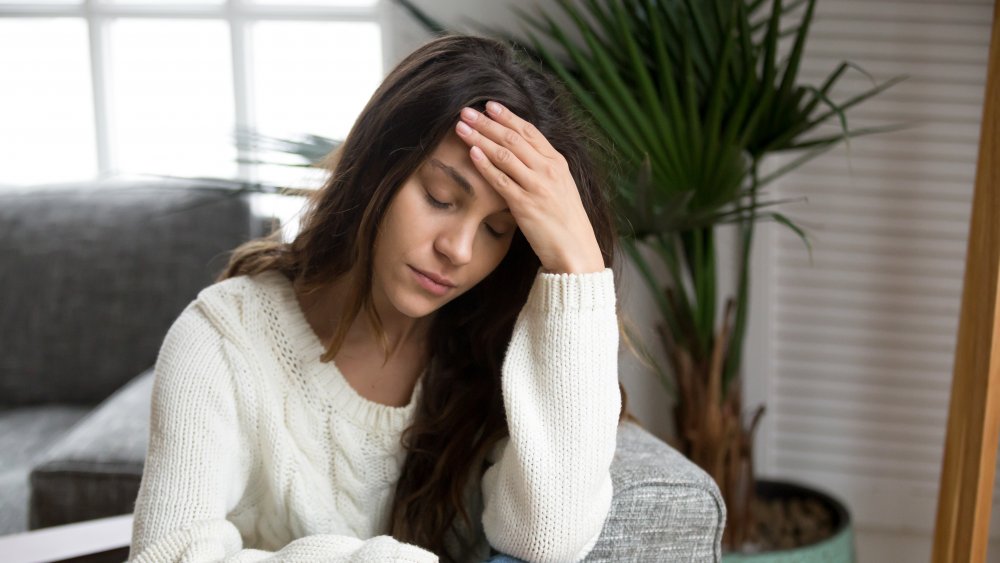The Real Way COVID-19 Is Affecting People's Mental Health
While it seems we learn something new about the physical effects of COVID-19 every day, the impact on our mental health is starting to emerge as well — and it's not so great. From coping with anxiety and depression due to isolation to grappling with guilt and fear of spreading the virus to family members and friends, the pandemic continues to unsettle our collective mindset, rattling some people to the point of not seeking help (via Fox News).
"In most cases, when we experience illness, we only have to focus on our health," said Rachel Potter, a licensed social worker at Mount Sinai — National Jewish Health Respiratory Institute. "However, because COVID is highly contagious, we must manage not only ourselves but the additional responsibility of potentially infecting those we love, especially those in a high-risk category."
There's another aspect that goes along with these issues, too. New research published in the Journal of General Internal Medicine found that U.S. adults experiencing anxiety and depression were more likely to delay seeing the doctor during the pandemic, showing a strong link between mental health and medical care avoidance. In the study of more than 70,000 people, researchers observed that those with common symptoms such as feeling nervous or on edge, having uncontrollable worries, experiencing little interest in doing things, and feeling depressed or hopeless were at up to double the risk for not seeking medical attention.
Here's how you can lower anxiety today
"The results from our study are alarming given that delaying medical care can have significant adverse short- and long-term health outcomes, depending on the condition," said lead study author Kyle T. Ganson, Ph.D., of the University of Toronto (via Newswise). "We need to increase access to telehealth, and in the U.S., health insurance policies must be expanded to cover telehealth services that address non-emergency medical concerns."
In addition to telehealth, there are other steps you can take to help lower anxiety during the pandemic. Limiting your news intake to avoid unreliable fearmongers, meeting friends for virtual happy hours, maintaining a schedule, practicing self-care activities such as journaling, and doing a tech detox to ward off overstimulation from your phone and laptop are all things you can take control of (via Psychology Today). Try doing one today for better peace of mind for the long run — and to ensure you seek help when you need it.


